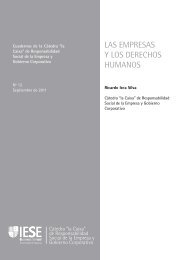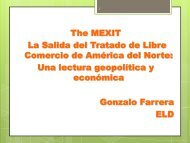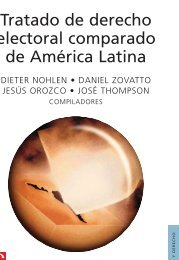0745685749 enemies democracy
Create successful ePaper yourself
Turn your PDF publications into a flip-book with our unique Google optimized e-Paper software.
30 The Inner Enemies of Democracy<br />
to the powerful of this world, or else to the crowd. The<br />
demand for autonomy emerges from the academies and<br />
salons and is debated out on the streets; the struggle is<br />
led, not by scholars, but by men engaged in the public<br />
arena. In this way, the issues first mooted in private and<br />
personal publications led to the French Revolution.<br />
In the years leading up to the outbreak of the<br />
Revolution, the moderate attitude, as it could be seen in<br />
the thought of Montesquieu (and even Rousseau), was<br />
subjected to strong criticism from other representatives<br />
of the Enlightenment, thus introducing a real split in this<br />
line of thought. The iconic figure here is Condorcet, who<br />
wrote a commentary on the work of Montesquieu. On<br />
the crucial issue of the appropriate legislation for each<br />
country, he condemned the pluralism of his predecessor<br />
and what he saw as his conservatism. If, through science<br />
and reason, it has been established what the right<br />
laws must be, why not give these laws to all people?<br />
More generally, we find in Condorcet an optimism of<br />
the will: in a thoroughly Pelagian spirit he thinks that,<br />
if we apply ourselves to the task, we will be able to<br />
eradicate evil from the face of the earth; the march of<br />
progress will continue indefinitely, and all men will one<br />
day lead lives of fulfilment. Faith in continuous and<br />
unlimited progress, a faith of which Condorcet is one<br />
of the main promoters, applies to mankind as a whole<br />
the individual’s capacity for development, affirmed by<br />
Pelagius. Here, within the Enlightenment, we move<br />
from what might seem like a ‘wait and see’ attitude (that<br />
of Montesquieu) to a spirited activism.<br />
The shifts in the themes and place of the debate<br />
blended with the voluntarism of Condorcet, and together<br />
they provided an appropriate framework for the ardent<br />
longings that were now widespread. The new thinking<br />
found favour with the protagonists of the Revolution.<br />
Moreover, Condorcet would be one of them: no longer<br />
satisfied with being secretary of the French Academy, he













